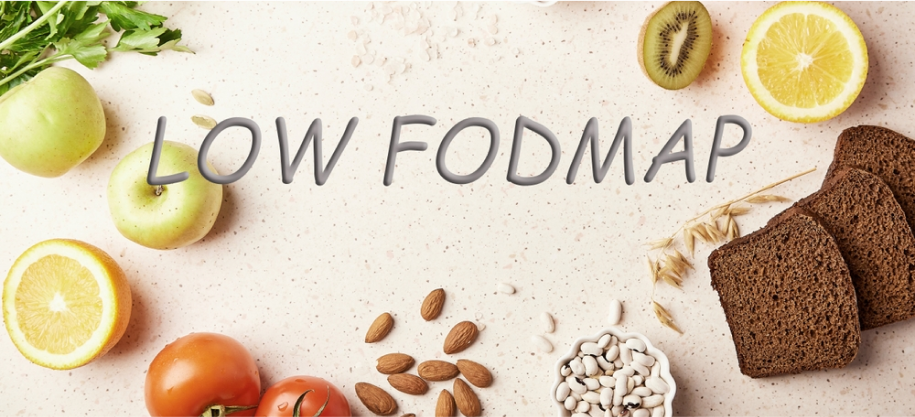
991
For many people dealing with irritable bowel syndrome (IBS) or other gastrointestinal issues, the low FODMAP diet can provide significant relief from uncomfortable symptoms such as bloating, gas, diarrhea, and abdominal pain.
Developed by researchers at Monash University, this diet restricts certain fermentable carbohydrates (FODMAPs) that may cause digestive problems.
However, making the switch to a low FODMAP diet is not easy and presents its challenges. In this article, we will discuss the obstacles and solutions for implementing this research-supported dietary approach.
The low FODMAP diet is quite restrictive and requires the removal of a variety of foods, including certain fruits, vegetables, grains, dairy products, and sweeteners. For someone unfamiliar with this method, figuring out which foods are high in FODMAPs can be daunting.
Solution: Education and resources are essential. Monash University’s low FODMAP app offers a detailed and regularly updated list of foods sorted by their FODMAP levels.
Additionally, registered dietitians who specialize in gastrointestinal health can provide crucial support during both the elimination and reintroduction stages of the diet (Monash University, 2023).
Planning balanced meals while adhering to low FODMAP guidelines can be quite challenging, particularly for those with hectic lifestyles or limited cooking experience.
Eating out can also pose difficulties due to the presence of hidden FODMAP ingredients in many menu items.
Solution: Begin with straightforward recipes and gradually broaden your cooking skills. Preparing low-FODMAP staples in bulk, such as lactose-free yogurt, rice, or grilled chicken, can alleviate mealtime stress.
When dining out, take the time to research menus beforehand and feel free to inquire with restaurants about possible ingredient changes (Staudacher et al., 2017).
The restrictive nature of the low FODMAP diet can result in deficiencies in fiber, calcium, and other vital nutrients if not managed properly.
Solution: Aim to include nutrient-rich, low-FODMAP foods in your diet. For instance, replace high FODMAP fruits like apples with oranges or bananas, and opt for lactose-free dairy products or fortified plant-based alternatives. Consulting a dietitian can also help identify if supplements are needed (Halmos et al., 2014).
Food plays a significant role in our social and cultural lives, and having dietary restrictions can sometimes lead to feelings of isolation or anxiety. It can also be difficult to explain your diet to friends and family.
Solution: Open communication is essential. Share details about your diet with your loved ones and invite them to be part of your journey.
Many people find that online support groups and forums are great for connecting with others who face similar challenges. These communities often exchange tips, recipes, and emotional support (Parker et al., 2018).
The low FODMAP diet is not intended to be a lifelong commitment. The elimination phase is just the beginning, followed by a gradual reintroduction of FODMAPs to pinpoint individual triggers. Without proper guidance, many individuals find themselves stuck in the elimination phase, which can be overly restrictive.
Solution: Collaborate closely with a dietitian to help you through the reintroduction phase. This step is crucial for determining your personal tolerance levels and broadening your diet to include as many foods as possible.
Customizing the diet promotes long-term sustainability and enhances overall health (Ong et al., 2010).
Suddenly, many of your favorite foods are off-limits. No more garlic bread, creamy pasta sauces, or juicy apples. This sudden change can feel overwhelming and even a bit depressing.
Solution: Shift your focus to the foods you can enjoy! Try out new recipes, find tasty low-FODMAP alternatives, and embrace the culinary journey. There are plenty of resources available, from cookbooks to online communities, to spark your inspiration.
Dining out can turn into a tricky situation. Figuring out restaurant menus, explaining your dietary needs, and feeling like a burden to others can lead to social isolation.
Solution: Be open with your friends and family. Share what the low-FODMAP diet entails and why it matters to you. Many restaurants are becoming more accommodating to dietary restrictions, so don’t hesitate to ask for modifications or suggest alternative dishes.
Reading labels can quickly become a tedious and overwhelming chore. Figuring out ingredient lists and navigating unfamiliar aisles can be intimidating.
Solution: Begin with a solid understanding of FODMAPs. Create a "low-FODMAP" shopping list and stick to it. Gradually explore new products and brands. Many grocery stores now feature dedicated sections for gluten-free and allergy-friendly foods.
Limiting certain food groups can result in nutrient deficiencies. For instance, reducing your fruit intake may decrease your consumption of essential vitamins and fiber.
Solution: Collaborate with a registered dietitian who specializes in FODMAPs. They can assist you in developing a personalized meal plan that guarantees you receive all the necessary nutrients. Consider adding vitamin and mineral supplements if needed.
The low-FODMAP diet isn't a universal solution. It demands patience, determination, and a readiness to try new things.
Remember: The low-FODMAP diet aims to enhance your quality of life. It’s about striking a balance between managing your symptoms and savoring delicious, nutritious foods.
Adapting to a low FODMAP diet can be tough, but with the right resources and support, it can also be a life-changing journey.
By grasping the diet, planning, seeking professional advice, and focusing on mental well-being, individuals can effectively manage their symptoms and enhance their quality of life.
Always consult a healthcare provider before starting any new dietary plan to ensure it is safe and appropriate for your specific needs.
Dr. Pranav Shukla
MBBS, MD Anaesthesia
Disclaimer: This communication does not substitute advice of a medical/healthcare practitioner. Please consult your doctor/healthcare professional for any medical/healthcare advice. Although greatest possible care has been taken in preparation of this response, Dr Reddy's shall not be liable to any person for contents of the same. Images appearing herein are for illustration purposes only.
